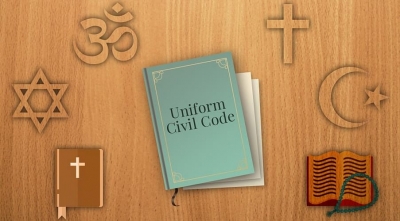
The uniform civil code has sparked a debate yet again in the country, with some calling it “essential” and others condemning it as “unconstitutional”. But what is a Uniform Civil Code? Let’s find out
What’s a Uniform Civil Code?
India is a country with its people professing different religions, following diverse traditions and celebrating varied festivals – a fine example of unity in diversity A Uniform Civil Code refers to a common set of laws governing personal matters such as marriage, divorce, adoption. succession, inheritance and such other things.
The UCC comes under Article 44 of the Constitution of India, which states that “The State shall endeavour to secure for the citizens a uniform civil code throughout the territory of India”. This was envisaged by Dr. B. R. Ambedkar, the father of the Indian Constitution. The UCC proposes a uniform personal law that would be applicable to personal matters of all citizens irrespective of their religion, caste, or gender. Personal laws are different from public laws, and currently, personal laws of different communities are governed by their respective religions, following customs and practices prescribed in their religious texts.
The primary objective of UCC is to treat all citizens equally irrespective of their religion and provide protection to vulnerable people. The draft of the UCC is yet to be finalised. Here it’s significant to note that India’s criminal laws are uniform and apply to everyone equally irrespective of their religious beliefs.
What’s the need for a UCC?
There is no uniformity because of the differences that exist within the present personal laws of different communities. For example, there are different succession laws. In some communities. the rights of women are limited. They cannot get an equal share in the property of their deceased parents as only male heirs are entitled to a bigger share in the property.
In some cases, women do not have a say in issues such as divorce, maintenance, etc. These practices governed by religion are at odds with the fundamental rights guaranteed in the Constitution. Such things are seen as depriving women of their rights and being unfair to them, hence the need for a UCC is deeply felt. With women becoming more independent due to rise in literacy rates and social awareness, many laws have been and are being amended to protect their interests.
The UCC, if enacted, is expected to simplify the laws that now remain segregated on the basis of religious beliefs, ensure uniformity and promote unity. However, concerns have been expressessed that in the urge for bringing in uniformity the secular and cultural fabric of the country is not threatened.
Picture Credit : Google




